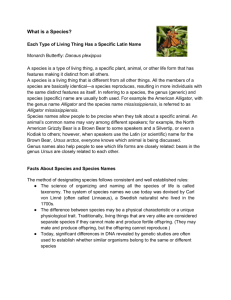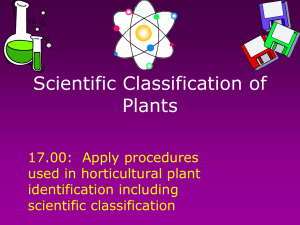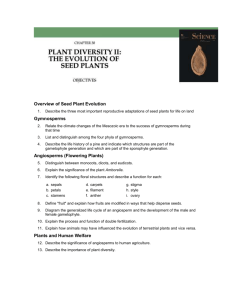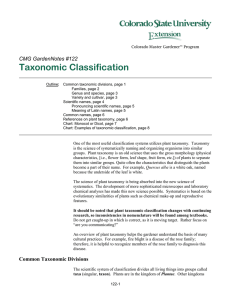Scientific Classification of Plants
advertisement
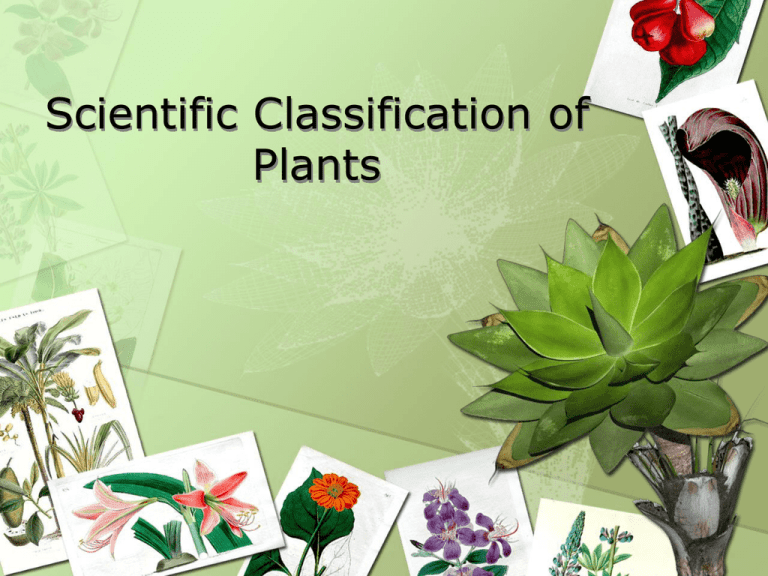
Scientific Classification of Plants Taxonomy • The science of classifying and identifying plants • Scientific names are used because the same common name is used for different plants in different areas of the world. Karl von Linne • Swedish botanist that developed the binomial system of naming plants using two Latin words to indicate the genus and species. • Linne changed his name to the Latin name Carolus Linneaus. Scientific Names • Latin is the language used for scientific classification. • The first word is the genus and the second word is the species. If there are additional words, they indicate a variety or cultivar. Genus vs. Species • Plants in the same genus have similar characteristics. • Plants in the same species consistently produce plants of the same type. Scientific Classification • The broadest category of scientific classification is the Kingdom-either plant or animal. • The broadest category in the plant kingdom is division or phylum. Divisions • The four most important divisions of the plant kingdom are: – Thallophites: algae, fungi, and lichens – Bryophytes: mosses – Pteridophytes: ferns – Spermatophytes Thallophytes Bryophytes Pteriophytes Spermatophytes • Contains flowering or seed-bearing plants • Two subdivisions are: – Gymnosperms: Seeds are not in an ovary they are in a cone. – Angiosperms: Seeds are enclosed in an ovary (fruit), therefore flowering plants Gymnosperms Angiosperms Angiosperms Common Plant Genus • Pinus-Pine • Cornus-dogwood • Acer-Maple • Rhododendronrhododendron • Ilex-Holly • Ficus-fig • Quercus-oak






